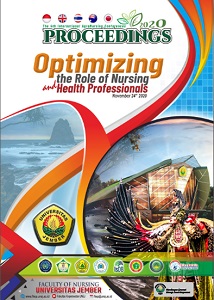AN ANALYSIS OF THE ASPECTS OF HEALTHCARE SERVICE QUALITY IN RELATION TO PATIENT LOYALTY
Abstract
Healthcare facilities such as hospitals, public healthclinics, and private practices are places that people
visit to obtain thorough medical care. The state bill
no.44 of 2009 stipulates that hospitals are
institutions that provide complete healthcare service
for individuals. The service included is providing
inpatient facilities, home care, and medical
emergency service. According to the bill, among the
functions of a hospital is to establish and maintain
the quality standard of healthcare service within the
hospital, which is then used as a blueprint or a
reference in day to day patient care.
The general public are becoming evermore
conscientious on choosing which hospital to go to
when they become ill. Which is why for every
hospital that offers medical service, the challenge
then arises on how to implement various strategies
in order to develop and not merely survive in the
growing healthcare industry. Among the strategies
that needs attention is sustaining the quality
standard of the hospital care service.
The quality standard of the hospital care service can
be measured using the SERVQUAL model (Service
Quality model), which gives rate to the indicators of
various qualities of service (Tjiptono, 2011). There
are 5 main aspects that are measured and arranged
below according to the relative
significance/importance (Tjiptono dan Chandra,
2011):
A. Reliability, which signifies the institution's ability
to provide error-free and accurate medical care
upon patient arrival, within the agreed upon time
constraint.
B. Responsiveness, signifies the healthcare
personnel's availability and capability to provide fast
response aid and cater to their needs and request. It
also involves the tactful knowledge of informing the
patient when the medical care will be given and
performing the promised care accordingly.
C. Assurance, signifies how the healthcare personnel
establish trust with patients which in turn earns the
patient's trust towards the institution. This can be
achieved by providing healthcare personnel who
maintain courteous conduct at all time yet possess
the skill and ability to answer any arising questions
or handle any given situation.
Furthermore, it involves the institutions ability to
foster a safe and secure environment for patients.
D. Empathy, signifies the ability of healthcare
personnels to establish effective communication
while delivering proper diagnosis. Caring is an
essential component which can be implemented by
giving personal attention to each patient.
E. Tangibles, correlates with the physical
environment of the establishment, which can come
in the form of an attractive office design, availability
of a full range medical equipment, and further
complemented by the pleasant appearance of the
healthcare personnels.
Delivering optimum service is essential for
institutions who thrive on gaining customer
satisfaction and building towards patient loyalty in
the long run.
Published
2017-01-27
How to Cite
RACHMAWATI, Dwita Aryadina.
AN ANALYSIS OF THE ASPECTS OF HEALTHCARE SERVICE QUALITY IN RELATION TO PATIENT LOYALTY.
UNEJ e-Proceeding, [S.l.], p. 133-136, jan. 2017.
Available at: <https://jurnal.unej.ac.id/index.php/prosiding/article/view/3915>. Date accessed: 22 dec. 2024.
Section
General









